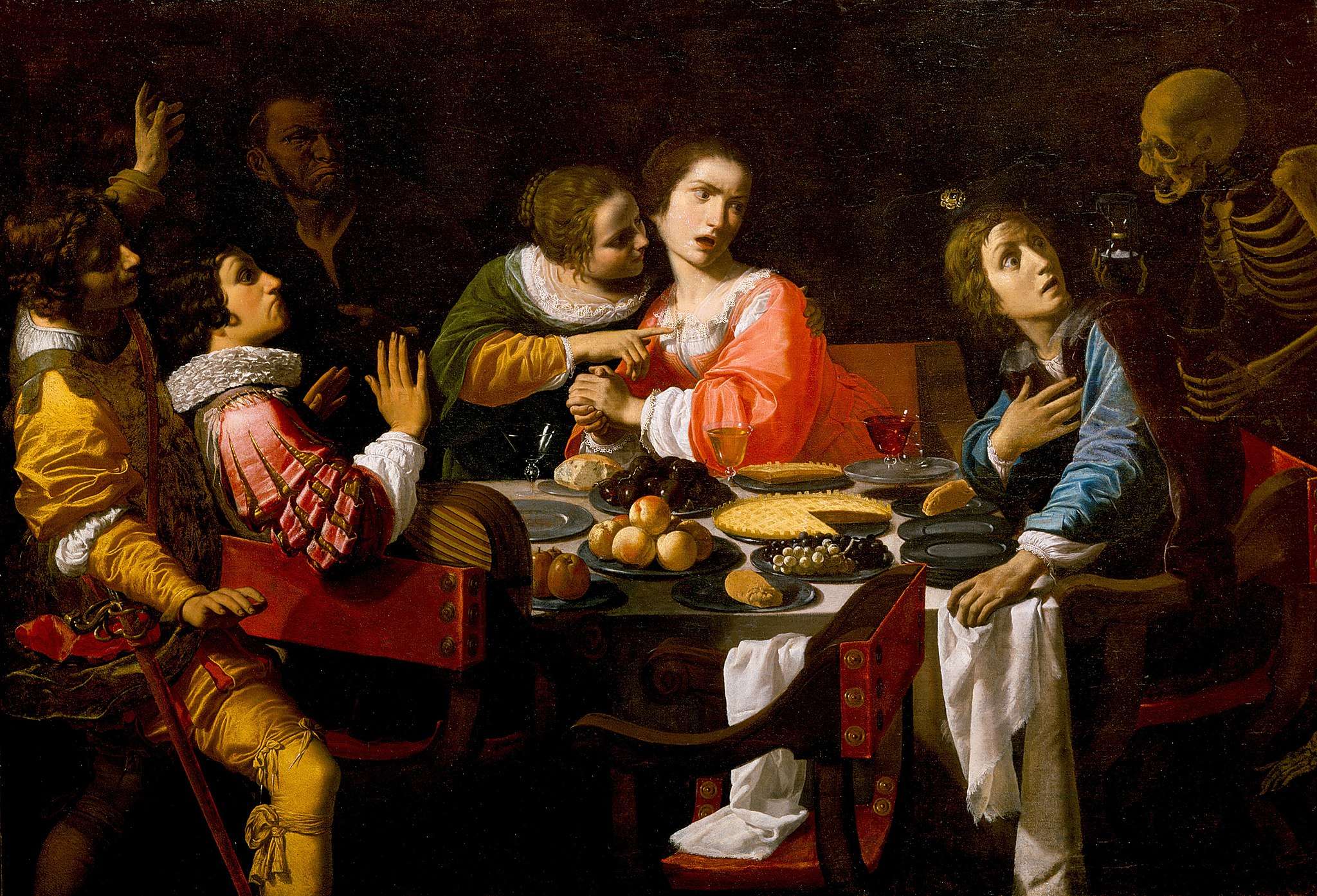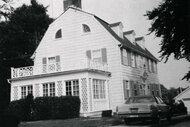Create a free profile to get unlimited access to exclusive videos, sweepstakes, and more!
Giulia Tofana, the Italian serial poisoner who became a legend

Sometimes, the most inconsequential moments can change the course of history. This is the story of one of those times — when a bowl of soup brought down 17th-century Rome's most notorious assassin.
Naturally, this story doesn't begin with that bowl of soup. No, it begins as all truly terrifying horror stories do: with unchecked patriarchy. Because in 1633 Italy, the unlimited power afforded to men meant that women of those times often suffered untold abuse. They had no standing in society and few opportunities to better their situations. They could marry and hope that their husband treated them decently, they could remain single and rely on sex work to survive, or they could become a widow.
That third option was the preferred choice among the wealthier class — women stuck in bad marriages with violent husbands who couldn't count on the law for help. Even if their spouse didn't physically harm them, the accepted idea that women were property meant wives didn't get much say in the shape their lives took.
The desire was freedom. The solution? Mariticide.
The method? Poison, obviously.
And no one was more skilled at crafting and packaging deadly poisons for Italian ladies in the 17th century than Giulia Tofana. Giulia was born in Palermo in the year 1620. Her mother was the infamous Thofania d'Amado, who was executed for murdering her own husband in 1633. It's been rumored that d'Amado passed down the recipe for her best-performing poison to her daughter, but even if that wasn't the case, Giulia herself was skilled in brewing all kinds of tinctures.
She moved from Sicily to Naples to Rome, expanding her black-market trade. Harboring a soft spot for women trapped in loveless, suffocating relationships, she started selling toxins to help them escape. With the help of her daughter, a group of trusted associates, and possibly a priest, Giulia launched an underground ring of criminals from her apothecary shop. To those not in the know, her business was cosmetics. She sold powders and liquids to enhance women's beauty.
That front made it easier to disguise her best-selling product: Aqua Tofana.
Aqua Tofana was a coveted face cream or oil used by Italian ladies looking to preserve their youth… or procure a status of widowhood. It came in a bottle or a powder case often labeled as "Manna of St Nicholas of Bari," a popular healing ointment for blemishes. Made of a mixture of lead, arsenic, and belladonna, Aqua Tofana contained some of the same ingredients as normal cosmetics at the time, which helped it to blend in on a woman's nightstand or vanity. Husbands were none the wiser that their wife's beauty regimen was their death warrant.
Another element of Giulia's poison that made it so masterfully deceitful is how it killed its victims. The first dose, normally diluted with some kind of liquid, would cause exhaustion and physical weakness. The second dose would bring on stomach aches, vomiting, and dysentery. The third or fourth dose would take care of the rest. The poison, and the method of administering it, meant that doctors and investigators believed the death had been caused by some unknown illness or disease. The slow-nature of the poisoning meant that victims had a chance to get their affairs in order, and their wives were there to exert their influence over what that order looked like. And the deaths — those tragically young lives lost to their sickbeds — were never believed to be anything more.
The poison undetectable, the murders free of suspicion, Giulia's business flourished.
She was careful to only sell products to ladies that she knew, or women who had been vetted by past clients. Unfortunately, one customer, a young woman who procured Aqua Tofana planning her husband's demise, got cold feet.
After mixing a few drops of the deadly liquid into her husband's soup, she panicked, begging him not to eat it and inadvertently revealing the criminal activities of Giulia and her accomplices. The husband forced his wife to give up Tofana and the rest of her network of poisoners and he soon got the police involved.
Giulia was beloved by the people, especially the women, both powerful and poor, who she helped. She got word of her warrant before the authorities came knocking and was granted sanctuary by a local church until a rumor began to spread that she had poisoned the city's water supply and the government took action, apprehending her and subjecting her to horrific torture.
Giulia confessed to killing over 600 men from 1633-1651 in Rome alone, though that number could be lower (or higher) given that her confession came under duress. It's believed that Tofana was executed in Campo de' Fiori in Rome in 1659, along with her daughter and a few of her most reliable associates. Dozens of lower-class women were executed after it was revealed they had been customers of Tofana, while many of the upper-class ladies were imprisoned or banished for their involvement in the scheme.
But what's remarkable about Tofana's legacy is how it's become this sort of folklore that continues to pop up throughout history. Her poisons and proof of power directly influenced the Affair of the Poisons in 17th century France — leading to the rise of La Voisin and the attempted murder of King Louis XIV. And on his deathbed, famed composer Wolfgang Amadeus Mozart allegedly blamed his sudden, mysterious illness on Giulia's creation, exclaiming: "I am sure that I have been poisoned. I cannot rid myself of this idea... Someone has given me aqua tofana and calculated the precise time of my death."
If poison is truly a woman's weapon, no one has wielded it like Giulia Tofana.


























